2020 in review: Top stories of the year in Costa Mesa
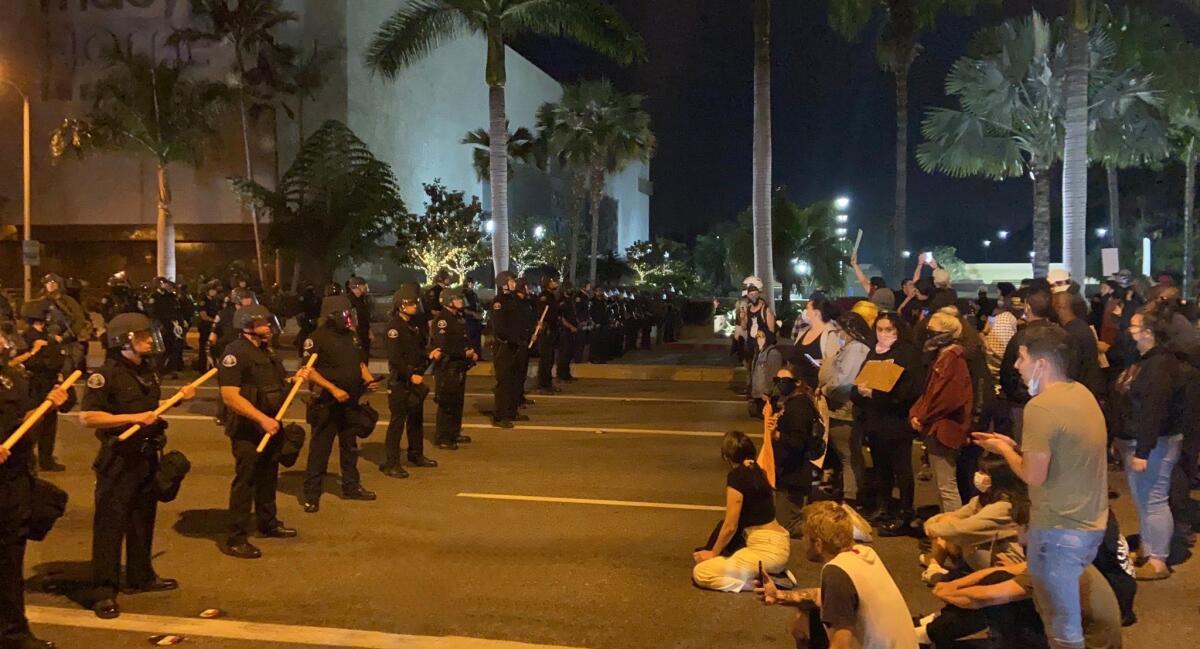
- Share via
In a year dominated by the coronavirus pandemic and its impact on public health, education, business and local governance, the city of Costa Mesa has been especially busy.
City leaders have responded to the crisis by focusing on efforts to keep spending dollars local, assisting small business owners and residents in need and steering a budget through stormy seas, all while staying abreast of changing COVID-19 regulations and current events that have further taxed city services and employees.
Still, not all the notable news this year had to do with the pandemic. Here are some of the top stories of Costa Mesa in 2020.
City racks up wins in sober living lawsuits
Costa Mesa scored big legal wins against sober living home operators who challenged a 2014 ordinance imposing permitting requirements and requiring facilities maintain at least 650 feet of distance from other recovery centers in residential areas.
In April, a U.S. District Court judge granted summary judgment in the city’s favor in a 2018 case brought by Pacific Shores Recovery. That ruling followed previous wins against Casa Capri Recovery and Southern California Recovery Centers, in which it was determined the regulations did not violate the federal Fair Housing Act.
Costa Mesa secured another victory in July against Yellowstone Women’s First Stop House, Inc. and two other entities that had filed complaints in 2014.
“These victories are not just for the people of Costa Mesa and those in recovery homes, but also for every city in California,” said attorney Jennifer Keller, whose firm represented the city, at the time.
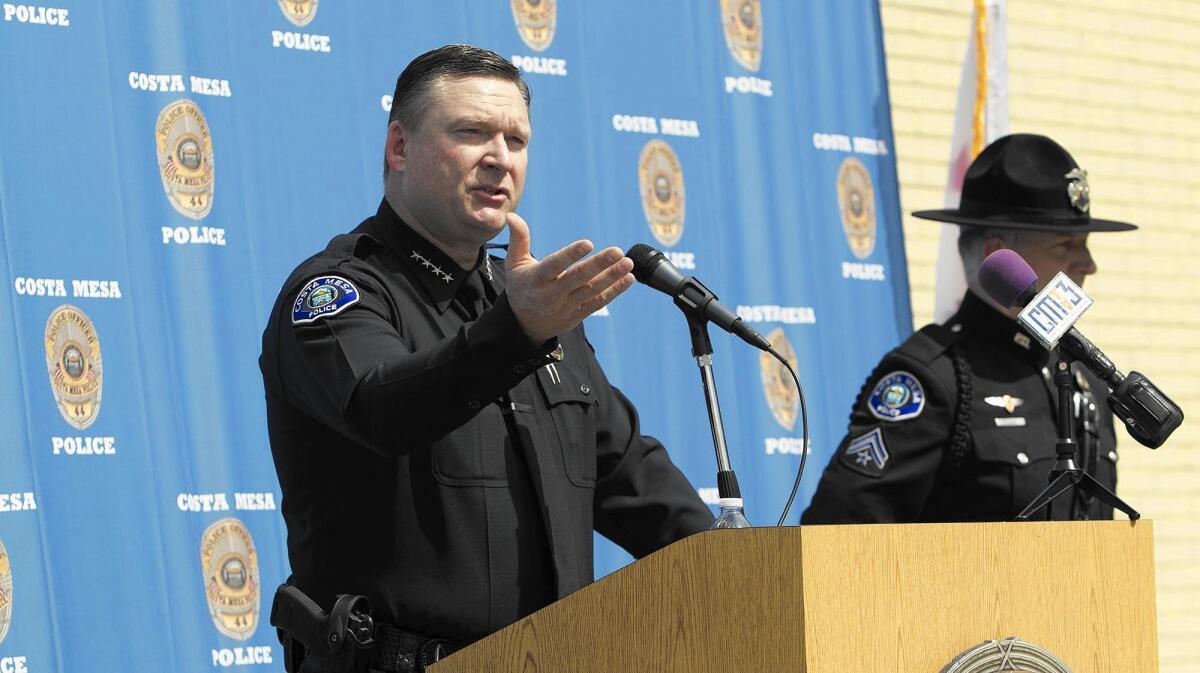
Former police chief sues city
Former Costa Mesa Police Chief Rob Sharpnack alleged in a lawsuit in February the city violated state labor code, breached his contract and retaliated against him in violation of the Fair Employment and Housing Act after he raised issues with the city’s budgeting process.
The lawsuit alleged city officials forced him to resign in October 2019, after he’d announced plans to retire, causing Sharpnack to suffer economic damages, including lost wages and retirement benefits, as well as “humiliation, mental anguish and emotional and physical distress.”
Sharpnack previously claimed he was discriminated and retaliated against for his complaints of interference in police matters and said he was asked to destroy or delete prior communications. The dispute is still working its way through Orange County Superior Court.
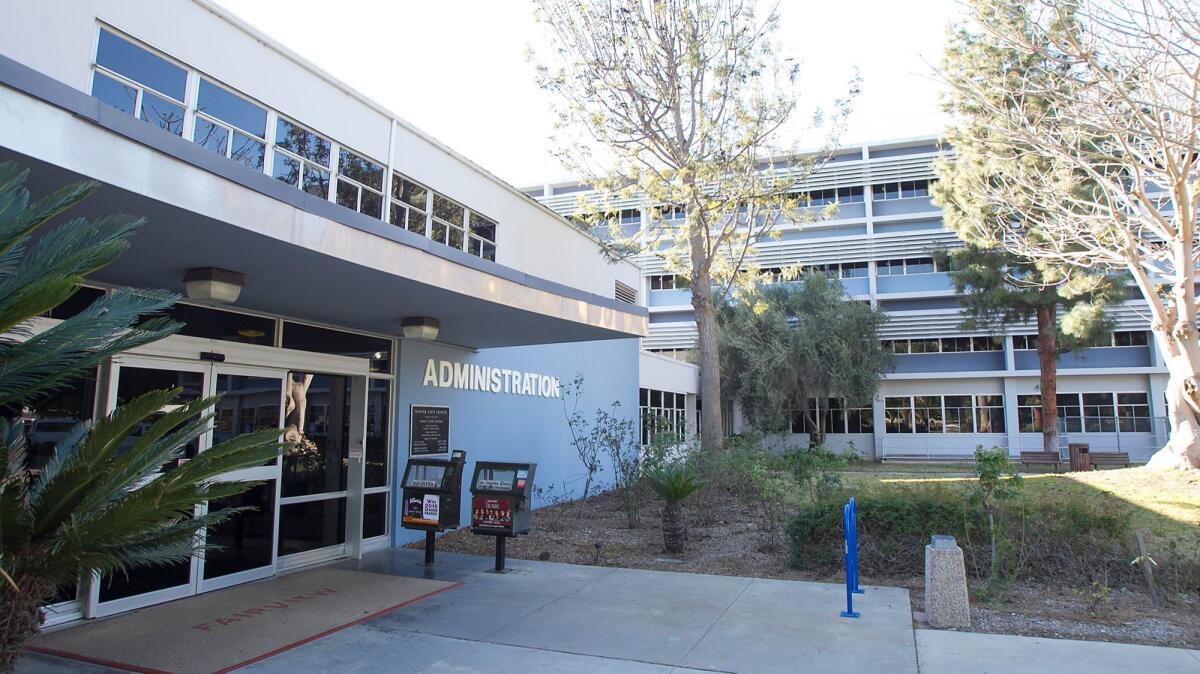
Fairview reopens to COVID-19 patients
The Fairview Developmental Center, a 114-acre former state hospital reopened its doors in late April as one of several California alternate care sites, equipped to help COVID-19 patients with non-acute symptoms and those recovering from the disease caused by the coronavirus.
The move came after a period of contention between federal and state agencies and the city of Costa Mesa, which was granted a restraining order in February to prevent coronavirus patients at Travis Airforce Base in Northern California from being transported to the city.
The site was built out to accommodate about 150 patients, but census remained low through September, when Fairview was temporarily closed. Earlier this month, however, as infections and hospitalizations surged, the facility reopened to patients and is opening wards for patients with dementia and developmental disabilities.

2020 OC Fair canceled, goes virtual
As it became clear the pandemic would continue indefinitely, officials with the OC Fair & Event Center made the decision in late April to cancel the 2020 OC Fair — a decision that disappointed legions of fans and cost organizers an estimated $12 million in proceeds.
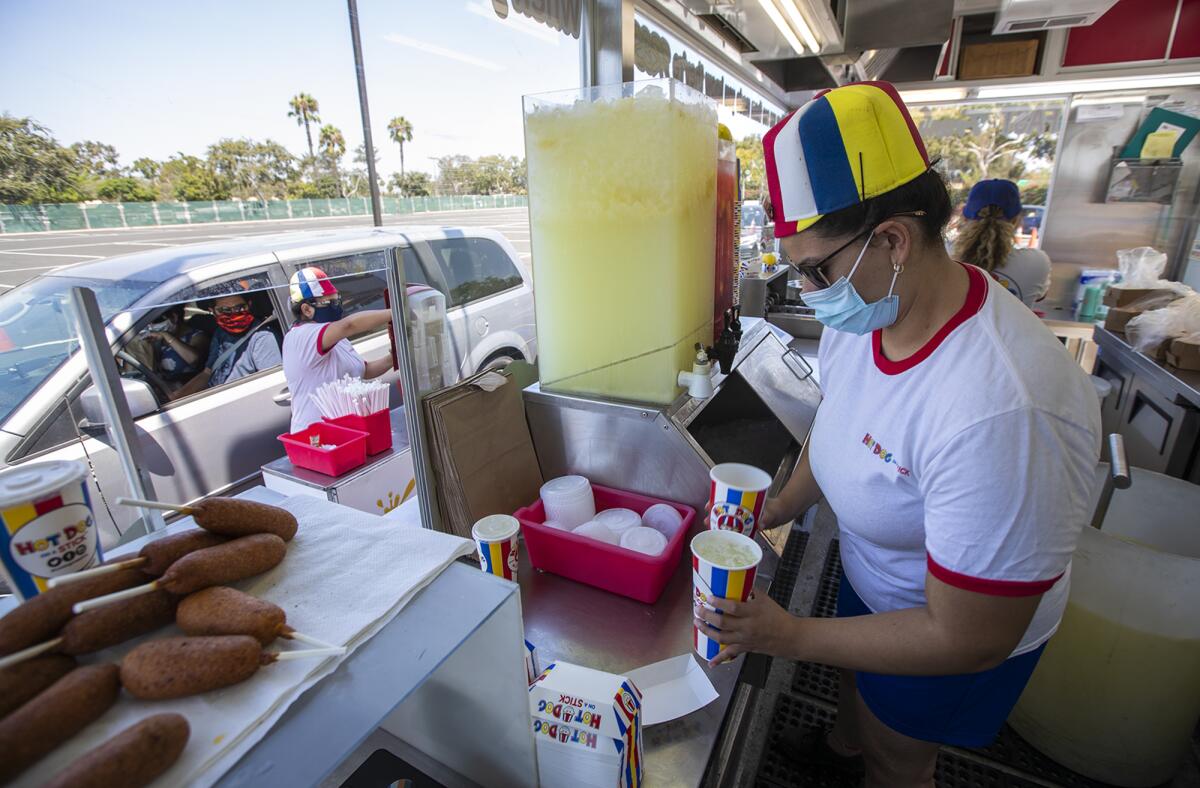
To give the fair faithful a glimmer of hope in a gloomy year, officials offered in July a Virtual OC Fair, which featured a suite of photo contests and competitions, fair food cooking demonstrations, online livestock auctions and more.
A Fair Food Drive Thru opened in August let masked patrons order turkey legs, funnel cakes and other goodies from the safety of their vehicles. The event was followed by a series of drive-in concerts and entertainment events, including the still-ongoing Night of Lights OC.
Now, hopeful organizers are sketching tentative plans for a scaled down but in-person 2021 OC Fair.
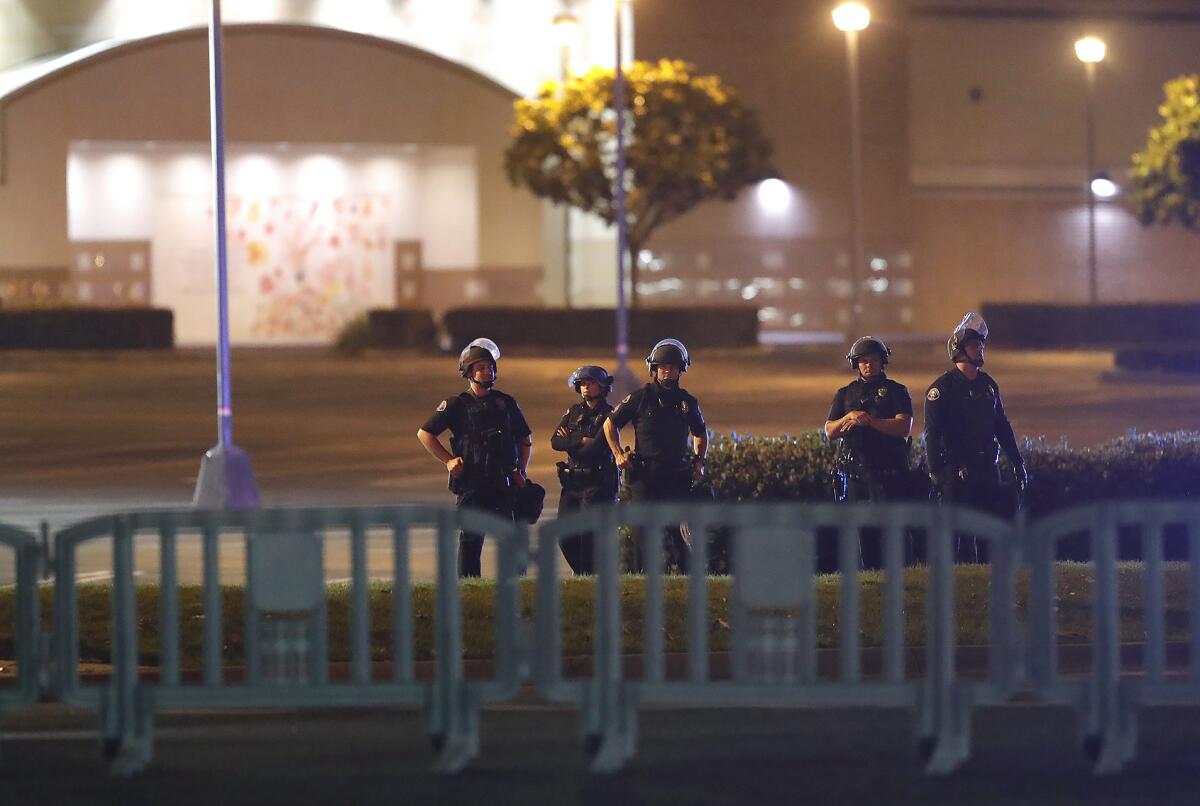
South Coast Plaza preps for potential riots, citywide curfews called
After months of costly closures, and with coronavirus rates at an early summertime lull, South Coast Plaza officials were preparing for a June 1 reopening when word spread through social media of a mass demonstration against institutional racism and police brutality being planned for the Costa Mesa shopping complex.
Storefront windows were boarded up and officers in riot gear lined up in the center’s parking lot as a standoff ensued between police and more than 100 protesters. Despite the mounting tension, only one arrest was made after a man attempted to break through the police line.
Anticipating demonstrations protesting the May 25 death of Minneapolis’ George Floyd while in police custody, Costa Mesa City Manager Lori Ann Farrell Harrison imposed a May 31 citywide curfew from 8 p.m. that night to 5 a.m. the following day. A second curfew was called June 1, though protesters who turned out to public rallies remained largely peaceful.
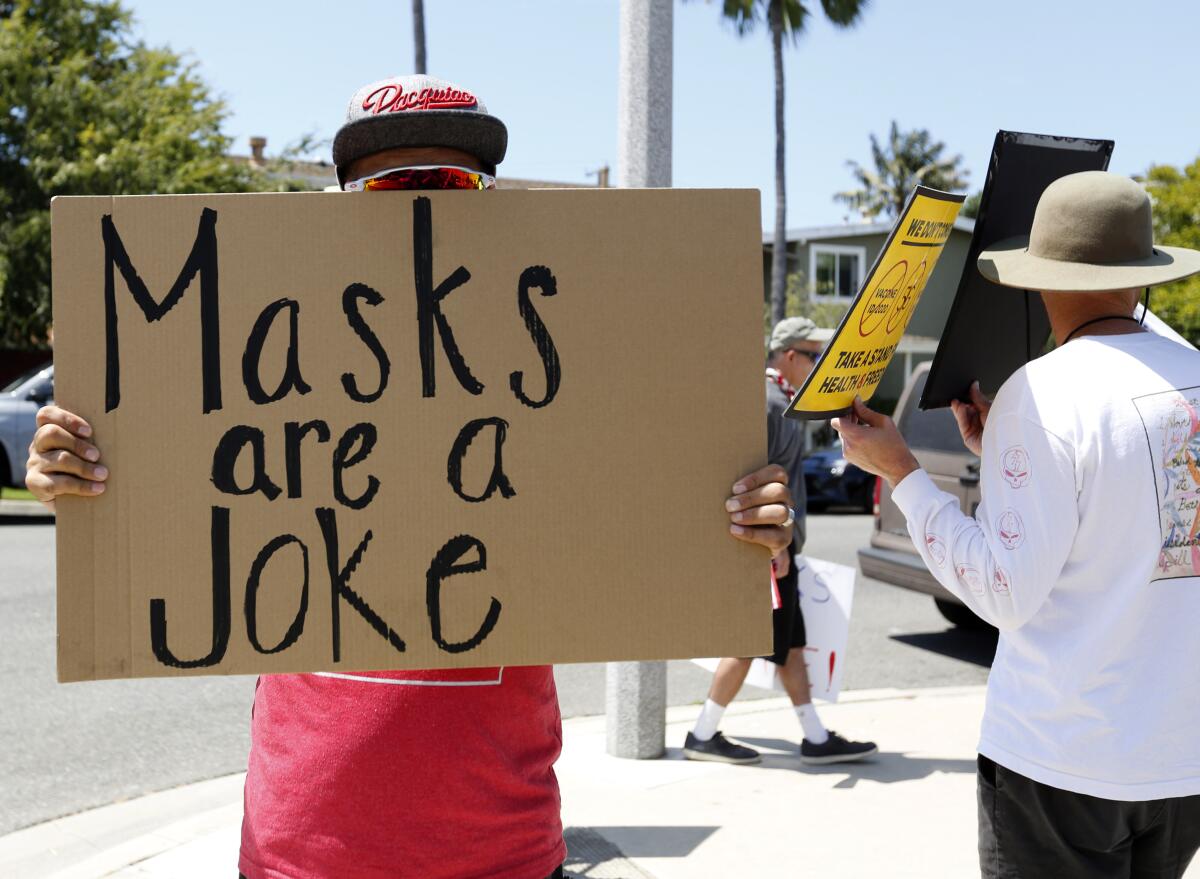
Costa Mesa mask mandate
To prevent community transmission of the coronavirus, city leaders implemented an April 13 mandate requiring all residents and employees at essential businesses to wear facial coverings inside city limits. In July, officials launched a campaign with signs reading: “No Mask = $100 fine” to reinforce the message.
Some scoffed at the move, posting photos of their unmasked faces out in public and daring law enforcement officers to cite them — none did. Costa Mesa Police Chief Bryan Glass confirmed as of July 20, no citations had been ordered but said authorities would enforce the order.
“At the onset of the pandemic and orders, the focus was education and voluntary compliance which has been seen throughout the city,” he said. “At this point during the pandemic, the department will take enforcement actions on blatant violations in general of the orders.”
Costa Mesa sex offender released
After 21 years of involuntary confinement to a state mental hospital for continually and openly harboring fantasies of raping and killing children, Costa Mesa resident Cary Jay Smith was released from Coalinga State Hospital in Fresno County on July 14, sending shockwaves through Orange County.
The Department of State Hospitals decided not renew Smith’s hold and did not require him to register as a sex offender upon release, though that decision was reversed as county officials intervened. Meanwhile, Costa Mesa officials worked with law enforcement to track Smith’s movements in the days that followed.
“That is beyond outrageous,” Orange County Supervisor Chair Michelle Steel said in a July 16 news conference. “That someone this dangerous would be released into our neighborhoods with little to no explanation and not be required to register as a sex offender is both dangerous and nonsensical.”
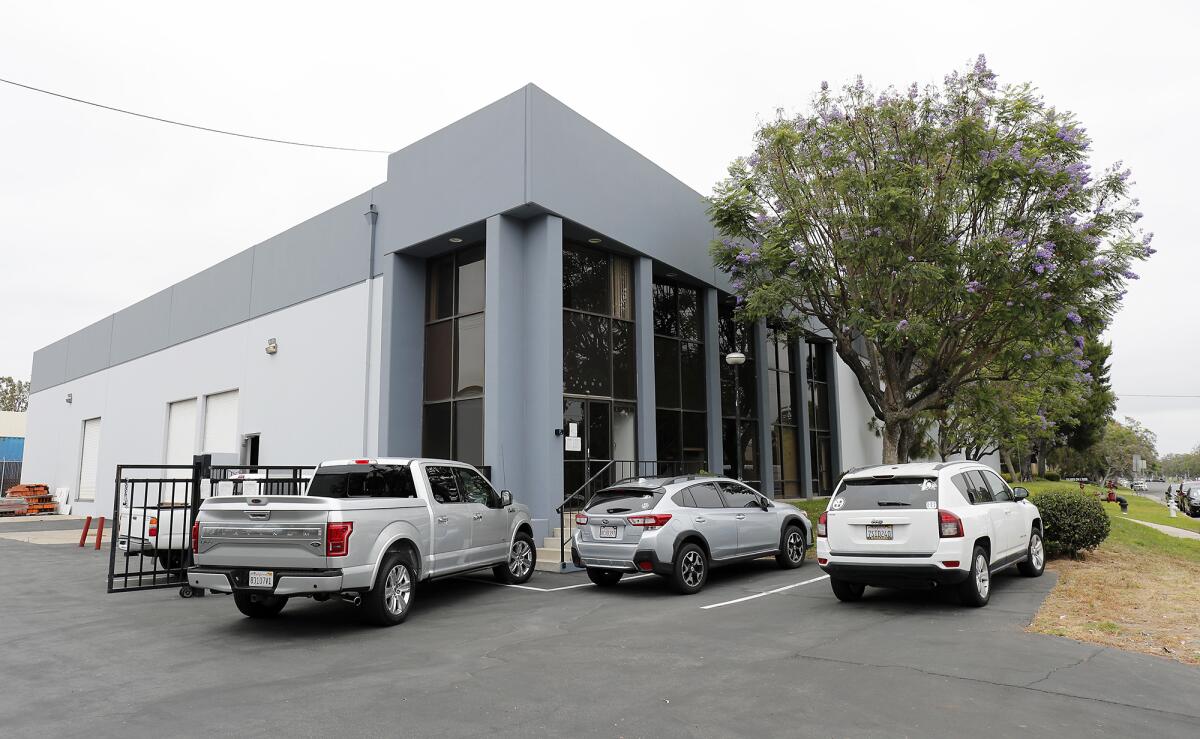
Permanent bridge shelter nears completion
During the settlement of a 2018 lawsuit that accused several Orange County cities — including Costa Mesa — of penalizing homelessness through anti-camping ordinances, it was determined municipalities could only enforce such rules if they offered bridge shelters, where residents could access services that would help them find housing.
A temporary shelter opened at Lighthouse Church of the Nazarene in April 2019 has since served more than 235 and housed 68 individuals. And now plans for a permanent bridge shelter are coming together.
The city dedicated $11.4 million to acquire and retrofit a 12,285-square-foot portion of an industrial warehouse on Airway Avenue into a 70-bed bridge shelter. Construction is anticipated to be completed in January, allowing for occupancy as soon as March.
“When they sued the county, I was like ‘How dare they?’” Mayor Pro Tem John Stephens said of the lawsuit in a September study session on homelessness. “But that really was a blessing in disguise.”
Voters pass Measure Q
Though Costa Mesa previously allowed for the distribution, manufacturing, processing and laboratory research related to medical and recreational cannabis in certain zoned areas under Measure X, on July 21, the council decided to place before voters a new initiative — Measure Q.
The measure would allow the retail sale and delivery of marijuana with certain restrictions. Officials said the law would give the city the authority to crack down on illegal dispensaries that have been popping up all over town, flummoxing enforcement efforts.
Voters on Nov. 3 resoundingly agreed. With 51,084 votes cast in the race, reflecting 83% of all the city’s registered voters, Measure Q won 65.17% approval.
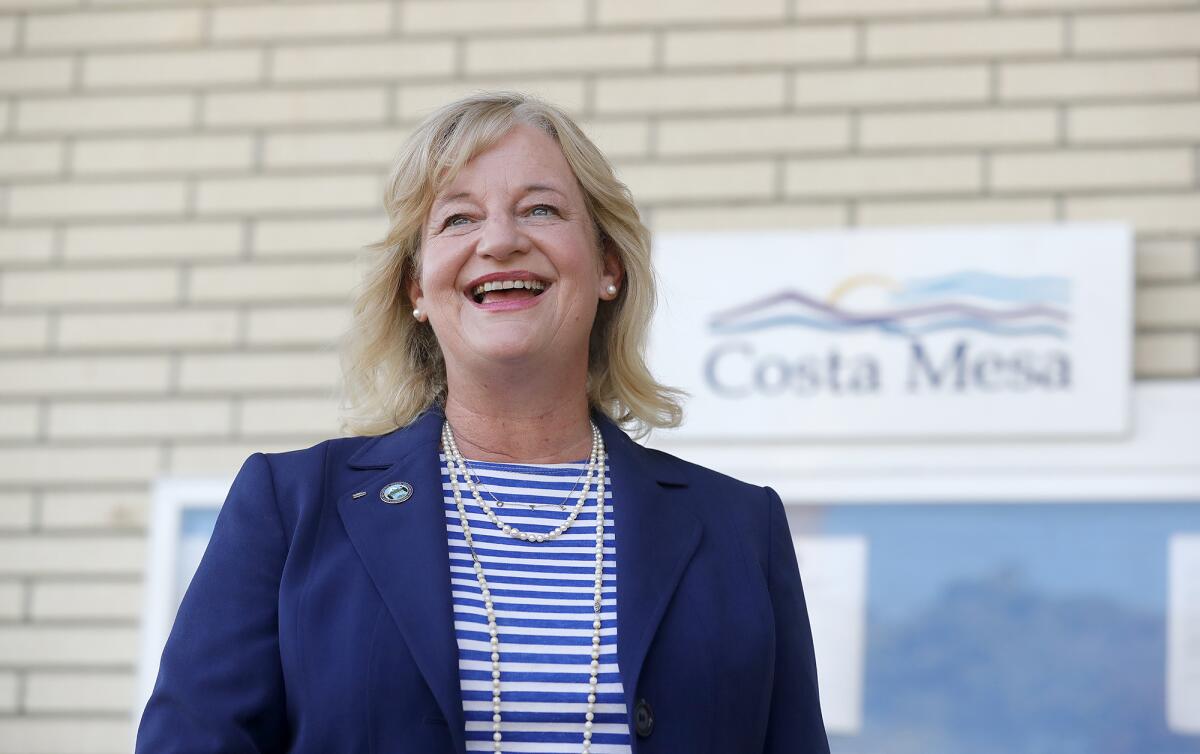
Foley reelected, sets sights on supe’s seat
Costa Mesa voters in the November election also affirmed their support for Mayor Katrina Foley, granting her a second term with 52.2% of the vote in a mayoral race of five candidates. She was sworn in with new council members Don Harper, Loren Gameros and Jeff Harlan in a Dec. 1 virtual meeting.
In early December, however, Foley announced plans to run for an upcoming vacancy on the Orange County Board of Supervisors, created by departing Chairwoman Michelle Steel, even though her Democratic politics would make her a minority on the conservative-leaning panel.
“It’s not about a D or an R behind your name,” Foley, 53, said in an interview at the time. “It’s about who’s the best qualified, who has a proven track record of actually doing work that benefits the community and who’s going to roll up their sleeves and make it about people and businesses and not about politics.”
All the latest on Orange County from Orange County.
Get our free TimesOC newsletter.
You may occasionally receive promotional content from the Daily Pilot.







